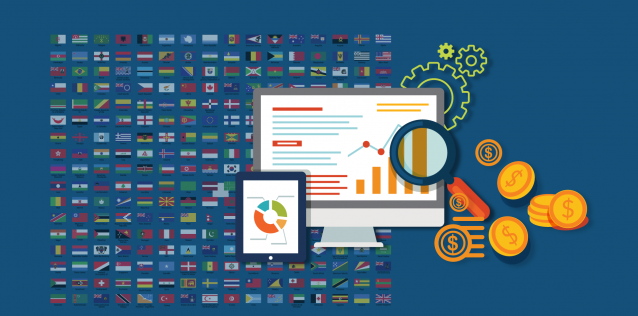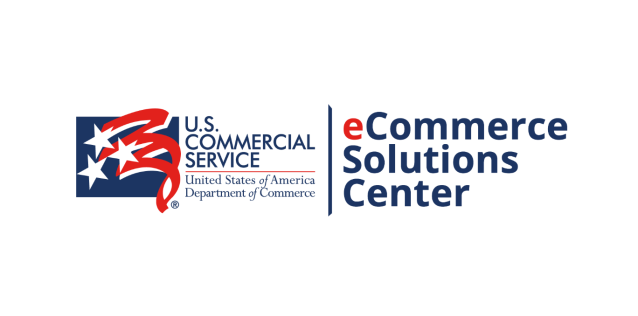USMCA Trade Agreement Updates
Article written by International Trade Specialist Caroline Kaufman, and Graduate Intern Olivia de Raadt-St. James Office of Supply Chain, Professional, and Business Services.
USMCA Boosts Cross-Border eCommerce
The United States – Mexico - Canada Agreement (USMCA) is a modernization of the 25-year-old former NAFTA agreement, updated to reflect the realities of cross-border trade in the 21st-century digital economy. Spurred in part by the COVID-19 pandemic, the strong uptake of cross-border ecommerce is expected to continue to accelerate.
New USMCA Digital Provisions
New provisions in the USMCA’s Chapters on Customs and Trade Facilitation and Digital Trade are important for firms in all three member countries that are engaged in, or considering engaging in, cross-border ecommerce transactions.
USMCA’s new provisions bring numerous benefits to businesses, particularly small-and-medium-sized enterprises (SMEs) engaging in cross-border ecommerce. These benefits include:
- STREAMLINED CUSTOMS AND EXPEDITED RELEASE OF EXPRESS SHIPMENTS: USMCA’s Customs Administration and Trade Facilitation Chapter contains new commitments to increase de minimis shipment values and lessen paperwork. De minimis value is the threshold below which a shipment is not subject to tariffs and customs duties. The following are the de minimis values specified in the USMCA:
- United States: US $800 customs duty free de minimis value
- Canada: C$150 for duty-free shipments and C$40 for taxes
- Mexico: US $117 for duty-free shipments and US $50 for taxes
- Additionally, a new provision for low-value shipments above de minimis simplifies procedures for those shipments.
- GREATER CUSTOMS INFORMATION SHARING: The USMCA includes a commitment by the partner countries to provide greater transparency and clarity around the requirements governing cross-border ecommerce. It requires all three countries to provide free, online access to all required customs information and to provide informational resources to help businesses navigate customs requirements. The USMCA also includes provisions that encourage the electronic submission of customs declarations, related documentation, and the payment of customs fees and charges. This supports ecommerce transactions by bringing greater predictability to cross-border transactions and reducing administrative costs and paperwork.
- ENHANCING AND GENERATING DIGITAL TRADE: The USMCA’s Chapter on Digital Trade reflects the increasingly digitalized nature of trade and commercial transactions and has important benefits for both businesses new-to-online, and those already established in cross-border ecommerce and international trade. This will benefit all sectors and service providers relying on data, technology, and digital services to optimize different aspects of their business operations, especially supply chain operations related to ecommerce. The digital economy provisions may also have significant implications for the innovation and application of technologies that can enhance digital trade, including:
- Artificial intelligence (AI)
- Machine Learning (ML), and predictive analytics
- Internet of Things (IoT)
- Blockchain and other digital ledger technologies (DLTs), among other areas.
- ELECTRONIC ADMINISTRATION OF CROSS-BORDER COMMERCE: The USMCA enables the widespread use and acceptance of electronic authentication and electronic signatures, helping to facilitate ecommerce transactions. It also includes a provision on paperless trading, encouraging the parties to accept trade administration documents submitted electronically as the legal equivalent of the paper version.
- CONSUMER PROTECTION AND INTERNET PENETRATION RATES: The USMCA Digital Chapter acknowledges another key challenge to ecommerce – internet penetration rates– by including principles on the access to and use of the internet for digital trade, stating the parties’ interest in widespread, reliable internet access for all. Ensuring that consumer protections apply in the online marketplace is key to building the consumer trust necessary for robust ecommerce growth.
- FREER FLOWS OF CUSTOMER AND COMMERCIAL DATA: The USMCA ensures that data can be transferred across borders and cracks down on data localization requirements used to restrict where data can be stored and processed. This is important because:
- It ensures customer and commercial data can move freely across borders
- Allows firms to store their data where it makes the most business sense
- Eliminates data storage costs that can particularly impact the ability of SMEs to participate in cross-border eCommerce.
USMCA Guidance & Assistance
ITA’s Office of Supply Chain, Professional and Business Services (OSCPBS) promotes and implements policies and programs that foster the competitiveness of U.S. supply chains and professional and business services exporters.
OSCPBS’s Supply Chain Services Team supports U.S. supply chain services industries and provides analysis and guidance to policymakers on major supply chain challenges and opportunities facing the United States. This includes ecommerce and how a digital strategy can be leveraged to support greater access for U.S. businesses to cross-border trade and new international markets.
Return to eCommerce Frontline Library Content
Looking for more ecommerce resources?











